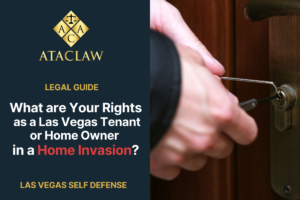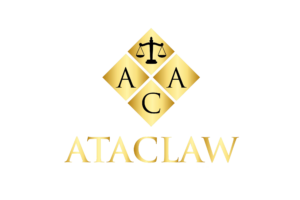
In the heart of Las Vegas, where the glitz and glamour of the city often overshadow the harsh realities of life, the sanctity of one’s home remains a paramount concern. Home invasions, a harrowing experience that violates the very essence of personal security, are treated with utmost gravity under Nevada law. This comprehensive guide delves into the intricate legal landscape surrounding home invasions, shedding light on the rights and protections afforded to homeowners and tenants while exploring potential defense strategies for those accused of such offenses.
Understanding Home Invasion Charges in Nevada
The Nevada Revised Statutes (NRS) define home invasion as the unauthorized and forceful entry into an inhabited dwelling, often accompanied by the intent to commit a felony within the premises. This offense is distinct from robbery, which specifically involves the use of force or threat to steal property from another person, regardless of location.
To establish a home invasion charge, the prosecution must prove the following elements:
- Unauthorized entry: The accused entered the dwelling without the consent of the lawful occupants.
- Force or threat: The entry was achieved through the use of force, violence, or the threat thereof.
- Intent to commit a felony: The accused had the intention to commit a felony, such as theft, assault, or any other criminal act, once inside the premises.
It is crucial to note that the intent to commit a felony within the dwelling is a key distinguishing factor between home invasion and other offenses, such as burglary or trespassing.
Severity of Penalties for Home Invasion in Las Vegas
Home invasion is regarded as a severe offense under Nevada law, with penalties that reflect the gravity of the crime and the potential harm inflicted on victims. The specific charges and associated penalties may vary depending on the circumstances of the case, such as the presence of aggravating factors or the involvement of weapons.
In general, home invasion charges can range from gross misdemeanors to category B felonies, carrying the following potential penalties:
- Gross misdemeanor: Up to 364 days in county jail and/or a fine of up to $2,000.
- Category B felony: 1 to 6 years in state prison and/or a fine of up to $5,000.
Aggravating factors, such as the use of a deadly weapon, the infliction of bodily harm, or the presence of vulnerable individuals (e.g., children or the elderly), can escalate the charges and result in enhanced penalties.
Legal Protections for Homeowners and Tenants
Nevada law recognizes the fundamental right of individuals to defend themselves, their loved ones, and their property from unlawful intrusion. Homeowners and tenants have specific legal protections in place to safeguard their homes and ensure their safety in the event of a home invasion.
The Castle Doctrine (NRS 200.120)
The Castle Doctrine, enshrined in Nevada law under NRS 200.120, grants individuals the right to use deadly force in self-defense against an intruder within their occupied home or vehicle. This doctrine eliminates the duty to retreat, allowing homeowners and tenants to stand their ground and defend their premises without the obligation to flee first.
To invoke the Castle Doctrine, the following conditions must be met:
- The individual must be lawfully present in the occupied dwelling or vehicle.
- The force used must be reasonable and necessary to prevent or terminate the unlawful entry or attack.
- The individual must not be the initial aggressor or provoker of the confrontation.
It is important to note that the Castle Doctrine applies only to occupied dwellings or vehicles, meaning that the use of deadly force against an intruder in an unoccupied property may not be justified under this legal provision.
Stand Your Ground Laws (NRS 200.120)
Nevada is a “stand your ground” state, meaning individuals have no legal duty to retreat before using force in self-defense, provided they are lawfully present in the location and not the initial aggressor. This principle, codified in NRS 200.120, extends beyond the home and applies to any place where the individual has a legal right to be present.
To claim self-defense under the stand your ground laws, the following conditions must be satisfied:
- The individual was not the original aggressor.
- The individual had a legal right to be present in the location where the force was used.
- The individual was not actively engaged in criminal activity at the time force was used.
It is crucial to note that the use of force must be proportional to the perceived threat and cannot exceed what is reasonably necessary for self-defense.
Justifiable Homicide and Self-Defense in Nevada
In cases where a home invasion results in the death of an intruder, the homeowner or tenant may assert a justifiable homicide defense if certain conditions are met. Nevada law (NRS 200.120) defines justifiable homicide as the lawful use of deadly force in specific circumstances, including self-defense, defense of others, and the protection of an occupied habitation or vehicle.
For a homicide to be considered justifiable under Nevada law, the following criteria must be fulfilled:
- The individual was not the original aggressor.
- The individual had a legal right to be present in the location where the deadly force was used.
- The individual was not actively engaged in criminal activity at the time deadly force was used.
Additionally, the use of deadly force must be reasonable and necessary to prevent imminent harm or death to the individual or others. The fear of harm or death must be objectively reasonable based on the circumstances, and the force used must be proportional to the perceived threat.
It is important to note that the determination of whether a homicide is justifiable is made on a case-by-case basis, considering all relevant factors and circumstances. Seeking legal representation from an experienced criminal defense attorney is crucial in navigating the complexities of self-defense laws and ensuring a fair and thorough evaluation of the case.
Potential Defense Strategies for Home Invasion Charges
If faced with home invasion charges, there are several potential defense strategies that may be employed, depending on the specific circumstances of the case. Some common defenses include:
Lack of Intent
To be convicted of home invasion, the prosecution must prove that the accused had the intent to commit a felony within the dwelling. If the defense can demonstrate that the accused lacked such intent, it could potentially negate this critical element of the charge.
Mistake of Fact
In some cases, the defense may argue that the accused had a reasonable belief that they were entitled to enter the property, perhaps due to a misunderstanding or misinformation. This could potentially negate the element of unauthorized entry.
Consent
If the homeowner or tenant had granted consent for the accused to enter the premises, it could nullify the unauthorized entry element of the home invasion charge.
Insufficient Evidence
Challenging the adequacy and credibility of the evidence presented by the prosecution can be an effective strategy. If the evidence linking the accused to the crime is weak, improperly obtained, or fails to establish the required elements beyond a reasonable doubt, it could undermine the prosecution’s case.
Alibi
Providing a credible alibi, supported by corroborating evidence, can be a compelling defense strategy. If the accused can demonstrate that they were at a different location during the alleged home invasion, it could create reasonable doubt in the minds of the jury or judge.
It is important to note that the success of any defense strategy heavily depends on the specific circumstances of the case and the skillful presentation of evidence and legal arguments by an experienced criminal defense attorney.
The Role of a Criminal Defense Attorney
Navigating the complexities of home invasion laws and defending against such charges can be an intricate and daunting process. Seeking the guidance and representation of a skilled criminal defense attorney is crucial to ensuring the protection of your rights and maximizing your chances of a favorable outcome.
An experienced criminal defense attorney can:
- Thoroughly evaluate the details of your case and assess the strength of the prosecution’s evidence.
- Advise you on the best legal strategies and defenses available based on the specific circumstances of your case.
- Advocate for your rights and interests throughout the legal process, including during negotiations, hearings, and trial proceedings.
- Ensure that all legal procedures are followed correctly and that your constitutional rights are upheld.
- Negotiate with prosecutors for reduced charges or alternative sentencing options, when appropriate.
- Represent you at trial and present a compelling defense on your behalf.
Choosing the right criminal defense attorney can make a significant difference in the outcome of your case. It is essential to seek representation from a lawyer with extensive experience in handling home invasion cases and a deep understanding of Nevada’s self-defense and justifiable homicide laws.
Conclusion
Home invasions are serious offenses that strike at the heart of personal security and the sanctity of one’s home. In Las Vegas, the legal landscape surrounding these crimes is complex, with intricate provisions and nuances that can significantly impact the outcome of a case.
By understanding your rights as a homeowner or tenant, the legal protections afforded by the Castle Doctrine and stand your ground laws, and the potential defense strategies available, you can better navigate the challenges posed by home invasion charges.
Seeking the guidance of an experienced criminal defense attorney is paramount in ensuring that your rights are protected and that you receive a fair and comprehensive evaluation of your case. With the right legal representation and a thorough understanding of the relevant laws, you can increase your chances of achieving a favorable outcome and preserving your freedom.
Remember, the law is designed to safeguard the rights of law-abiding citizens while holding offenders accountable. By staying informed and taking proactive steps to protect yourself, you can contribute to a safer community and uphold the principles of justice that underpin our society.
Do you need a Self Defense Attorney in Las Vegas?
If You're Facing Charges, We're Here To Help.
 Call us for help
Call us for help
"How do you beat a self defense charge in Nevada?"
"When is use of force permitted for self defense?"
What self defense weapons are legal in Las Vegas?
If you needed use of force during an act of self defense, and are now facing charges:
We have answers for you
To learn more about self defense charges in Las Vegas and how to get your self defense charge dismissed or to discuss a particular criminal case that you or someone you love is facing, Call ATAC Law firm for help to get your charges reduced or dismissed.
Contact us for a FREE phone meeting to discuss your case with what people are calling the best criminal defense attorney in Las Vegas.
At ATAC, our Las Vegas team of lawyers is here to work with you to help you through your case.
For Nevada Revised Statutes (NRS) related to legal matters, including sex crimes, fraud charges, DUI charges, domestic violence, and non-homicide self-defense, you can visit the official website of the Nevada Legislature or consult legal databases specific to the state. These resources will provide you with the most up-to-date and accurate information on the relevant statutes.
- Nevada Legislature Website: You can visit the official website of the Nevada Legislature at leg.state.nv.us. The website usually has an easy-to-navigate interface where you can search for specific NRS codes related to different legal categories.
- Legal Databases: Online legal databases such as Nevada Legal Forms or Justia may also provide access to the latest Nevada Revised Statutes.
- Legal Professionals: If you have specific legal questions or need assistance with legal codes, consulting with a legal professional, such as an attorney practicing in Nevada, is always a good idea.

